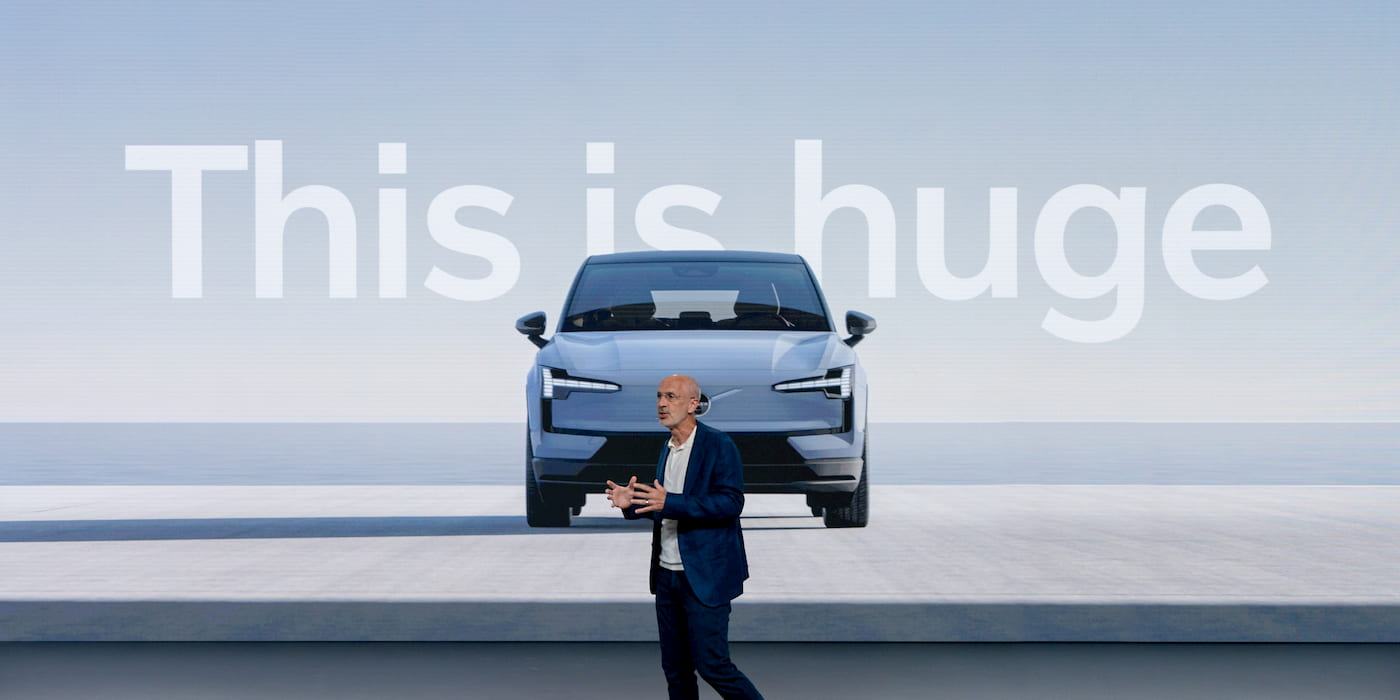
Despite delivering a higher percentage of electric cars during Q2 2023, Volvo said its margins on EVs fell due to higher lithium prices. However, that’s expected to change with the introduction of the Volvo EX30, its smallest and cheapest electric SUV.
After doubling EV sales in 2022 in a breakout year that included its highest revenue total of $32 billion, Volvo carried the momentum into the new year.
Through the first three months of the year, Volvo’s EV sales more than doubled again (+157%), with only two fully electric vehicles in its lineup – the XC40 and the C40 Recharge.
EV sales continued climbing, up another 88% in April and 196% in May compared to 2022. This past month, Volvo’s electric car sales more than quadrupled YOY, totaling 9,535.
Volvo’s sales of fully electric vehicles grew by 178% YOY in the second quarter, reaching 29,000 and accounting for 16% of its total share of cars sold. Despite more EVs sold, Volvo’s vehicle margins slipped due to higher lithium prices. Volvo says these cars were sourced during peak prices in late 2022.
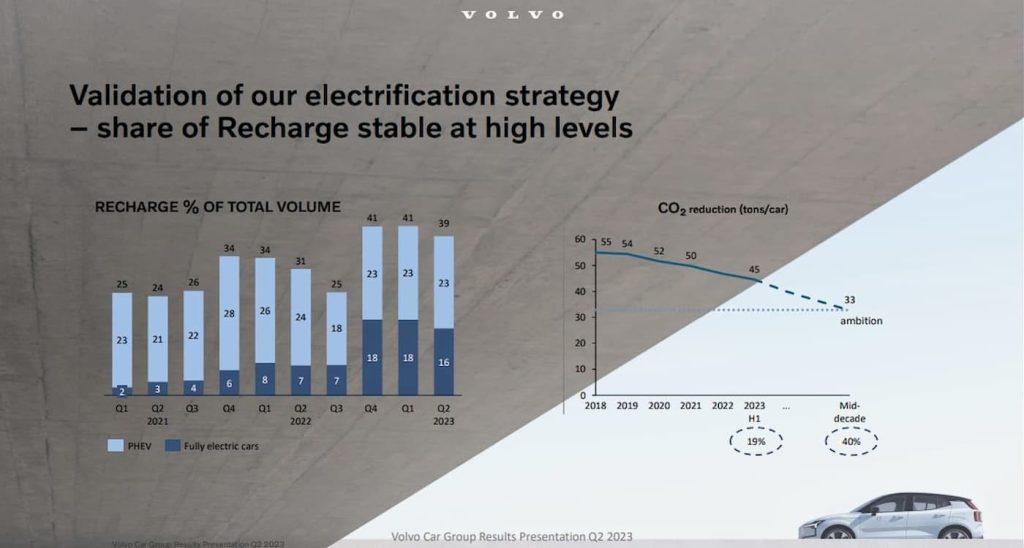
According to Volvo, as it enters the second half of the year, this will change. The Swedish automaker will benefit from lower lithium prices and increased pricing on 2024 model-year EVs.
Meanwhile, Volvo is just getting started. The company recently launched two fully electric vehicles, its smallest (EX30) and largest (EX90) EVs so far, which it believes will boost sales even further.
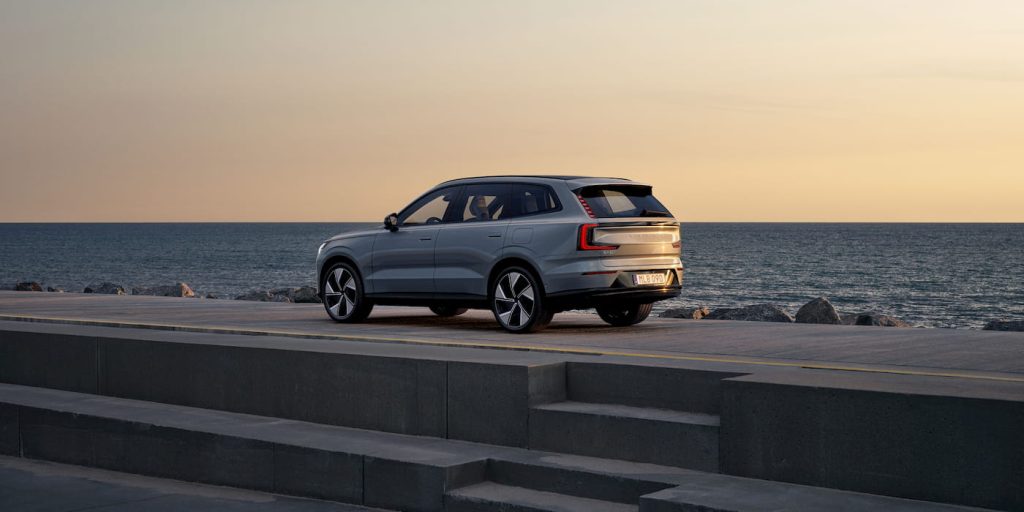
After selling out for the model year, Volvo had to close orders for its flagship EX90 electric SUV in April. Despite this, production has been pushed back to the first half of 2024 to finalize software development.
Can the EX30 save Volvo’s EV margins?
Volvo revealed its smallest and cheapest EV, the EX30, last month, which is expected to be a game changer for the Swedish automaker.
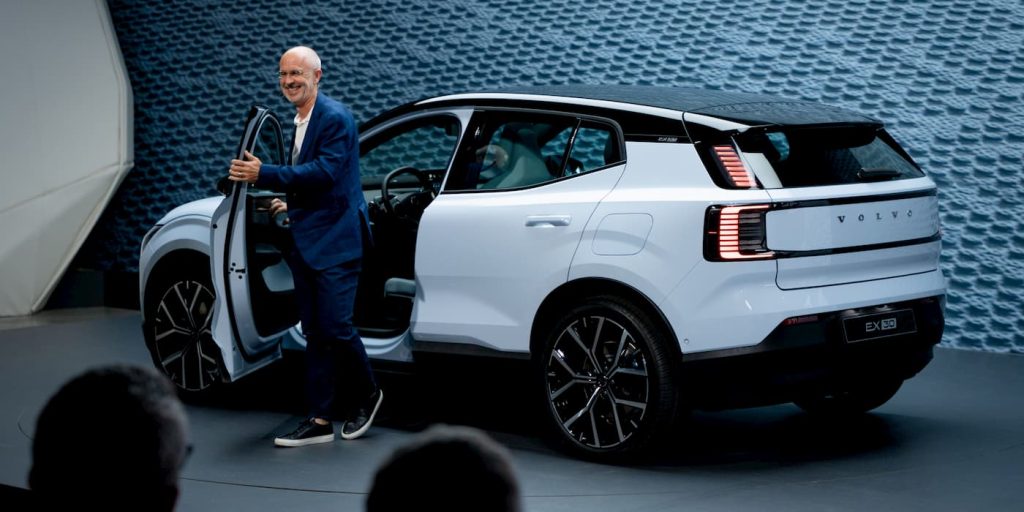
With a fun, zippy ride and starting price of around $35,000, Volvo is targeting a “completely different demographic” in younger buyers that it expects to expand rapidly in the next few years.
The automaker expects the EX30 will boost the company’s profitable growth, with expected gross margins in the 15-20% range.
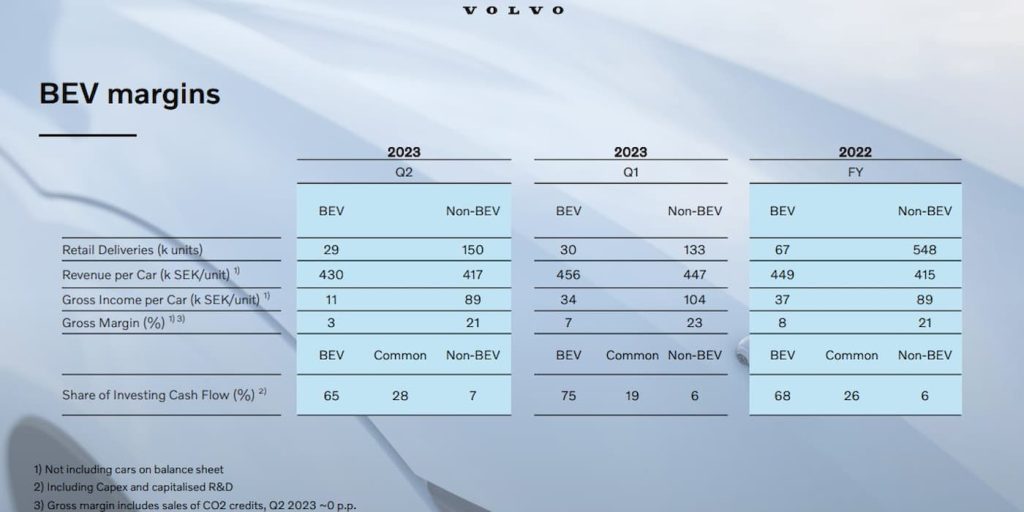
Volvo’s EV gross margins (including sales of CO2 credits) fell from 8% last year to 3% in Q2. As you can see from the image above, although Volvo’s revenue per car remained somewhat stable, gross earnings fell significantly due to higher lithium prices.
The company says it’s “putting in place important building blocks for its next growth phase,” with more electric cars on the way, a battery plant under construction in Sweden, and a new EV factory in Slovakia.
Volvo aims for 50% of sales to be fully electric by 2025. By 2030, Volvo plans to become an electric-only car maker.
FTC: We use income earning auto affiliate links. More.




Comments